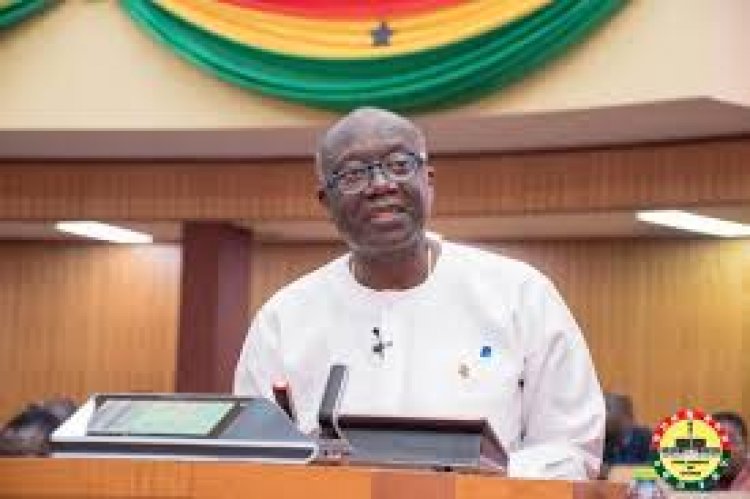The Minister of Finance, Ken Ofori-Atta, has cautioned that securing the extended credit facility from the International Monetary Fund (IMF) will not mark the end of the economic challenges facing the country.
Mr. Ofori-Atta, while giving an update on Ghana’s economy, indicated that the IMF-backed program is rather a precursor to the implementation of a program that will bring about the needed economic reforms.
“We have an ambitious agenda reform. Let me state clearly that securing an IMF program is not an end to our current challenges though it has significantly paved the way for the implementation of an ambitious and well-thought-out program of reform for our economy and country.”
He also gave a hint on how the government intends to achieve the needed economic reforms, which include revenue maximization, energy sector reforms, and others.
“In fact, the real work of adjustment, realignment, and the path to steady economic growth has just begun. Let us brace ourselves for the needed reform, especially in expenditure control, non-arrears accumulation, revenue growth, ECG revenue collection, and energy sector reforms in order to rebuild the walls of the republic with urgency.”
“That said, our reform program, the Post Covid-19 for Economic Growth, now supported by a three-year extended credit facility with the IMF is built on clear targets and strong policy and structural measures.
Over the medium term, the economic growth-backed IMF program seeks to promote a credible fiscal consolidation program anchored by strong domestic revenue mobilization and high spending efficiency,” the Finance Minister added.
He added that the government is targeting a primary surplus and a commitment basis, a critical fiscal anchor under the IMF program of 1.5 percent of our GDP by 2025 through to 2028 to friendly anchor inflation expectations and preserve financial stability to resort public debt to sustainable levels by 2028 by observing the two binding constraints of public debt.
Mr. Ofori Atta stressed that it is important that this structural reforms agenda is consistent with government's own public financial management strategy to transition from central government to general government operations.
He added that the shift is critical, as it facilitate clear oversight over key state institutions who's operations have significant and direct fiscal impact on our economy.


 Freeman Koryekpor
Freeman Koryekpor 


































